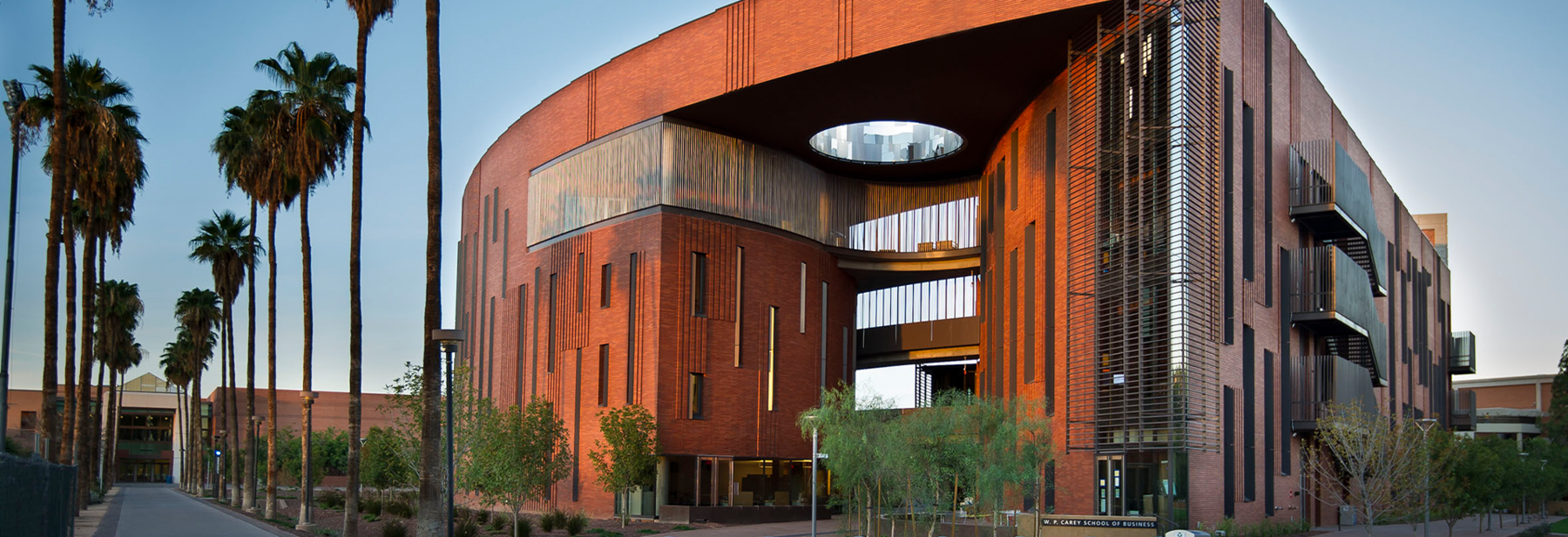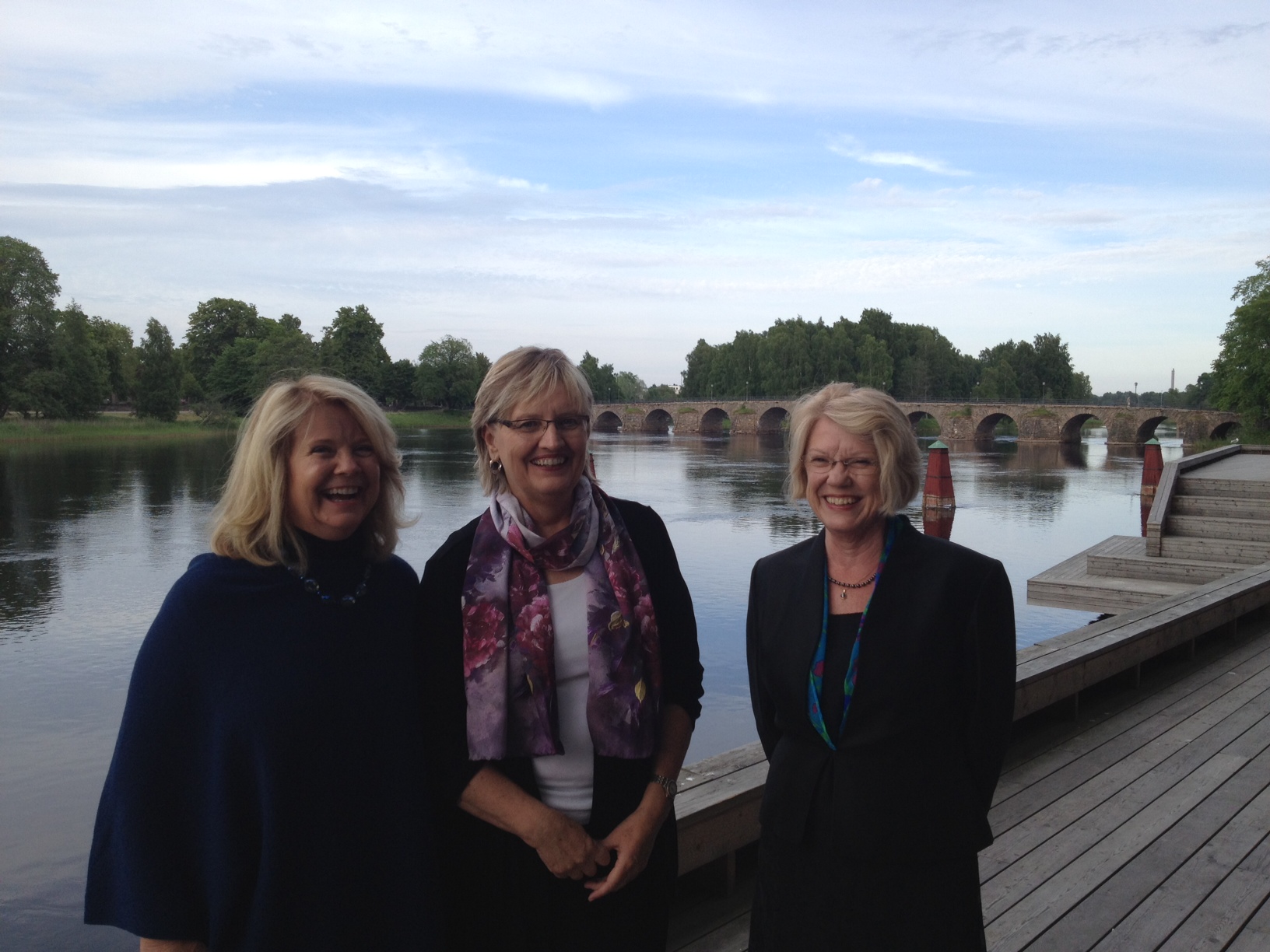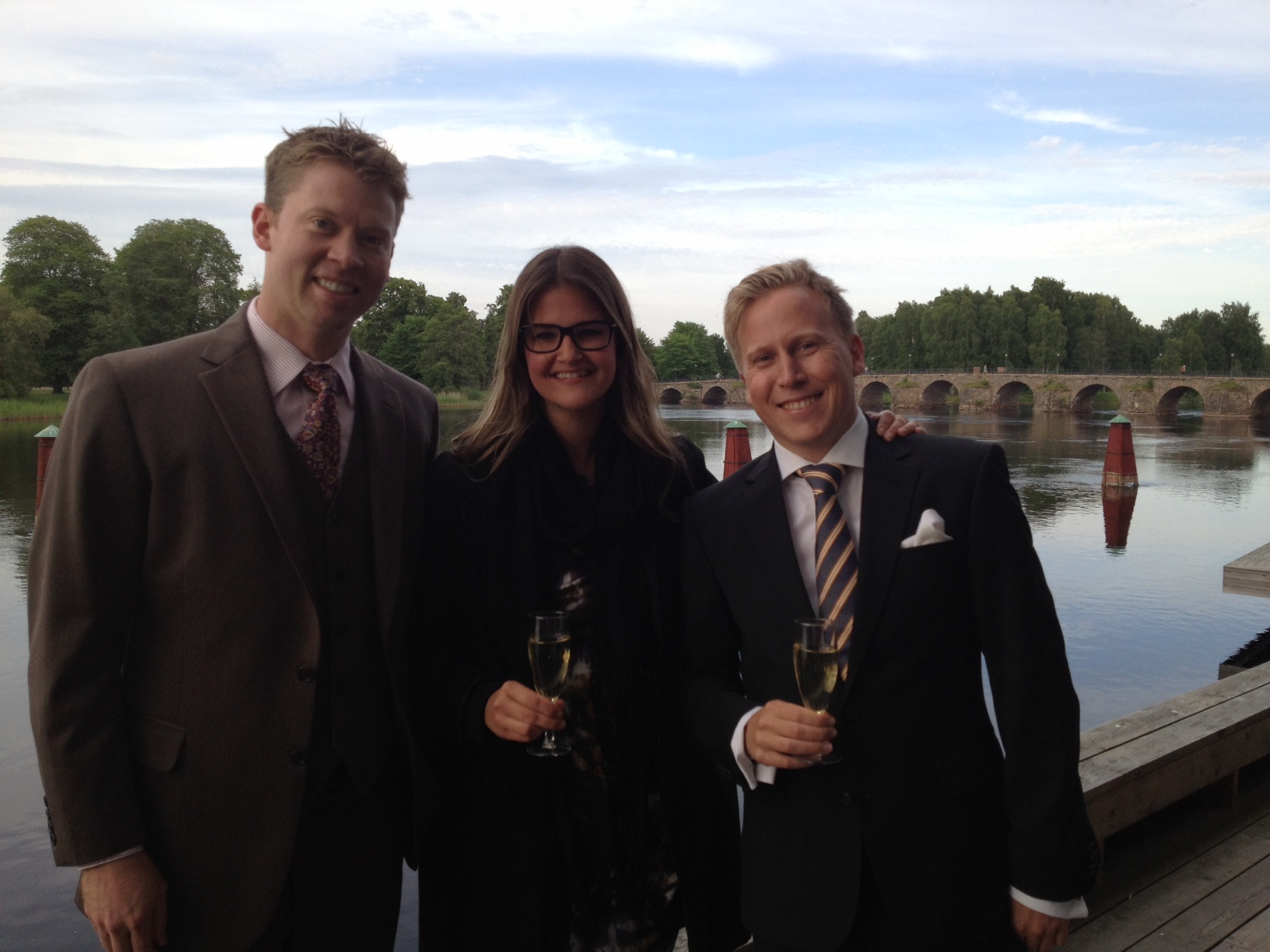
Thoughts on Summer 2013 Services Conferences

At QUIS reception in Karlstad.
Above, left to right: Dr. Laurel Anderson (ASU), Dr. Mary Jo Bitner (ASU),
Dr. Inger Roos (Karlstad University).
Below, left to right: Dr. Paul Fombelle (Northeastern University),
Daniele Mathras, PhD Student (ASU), Jon Engstrom, PhD Student (Linkoping University).

Summer is “conference season” for those of us in the service research community, with at least four services conferences in summer 2013 alone – that I am aware of – occurring all over the world from Sweden, to Greece, Taiwan, and Las Vegas! This summer I have already had the opportunity to attend two of our international conferences: QUIS was held in Karlstad, Sweden in June, and the Frontiers in Service Conference was held in Taipei, Taiwan in July. Both were outstanding conferences and they reinforce the growth of our discipline as well as global nature of it. Over 25 different countries were represented at both QUIS and Frontiers. In addition, both conferences were highly interdisciplinary, highlighting the trends in our field. Attendees were from business disciplines (including marketing, operations, human resources, management), as well as from engineering, design, and computer science.
There were outstanding research papers presented at both conferences as well as plenary talks by respected academics and business leaders—across a wide range of topics, again reinforcing progressive trends in service. Topics ranged from the growing impact of technologies on service, to service design for enhancing customer experiences, to new business models for service and moving traditional manufacturing and technology companies into service growth modes. Cutting-edge research on employee and operational issues in service was also presented.
Business leaders also shared their views and progressive initiatives. For example, James Weigand, President of DuPont Sustainable Solutions, and Center for Services Leadership Board member, shared “The Journey of a Service Business in a 210 Year Old Products-Based Company.” R. Gary Bridge, recently retired Senior Vice President of Cisco System’s strategic consulting arm and former CSL Board member, talked about “The Future of Service” with amazing insights into the role of technology and how it is changing our lives and the nature of service.
However, beyond the talks and great learning, a number of things strike me about our service research discipline and academic community at these conferences. Probably foremost is that the field is open, progressive, and inclusive in welcoming new voices and ideas. This has always been the case, since the early days of service research, but it is even more apparent now. Young scholars are welcomed and supported as they explore current and important topics. Much of the work they and others presented is on the cutting edge of service innovation, customer experience, service productivity, service system knowledge, as well as other areas. This progressive and open nature is apparent in the talks – where genuine conversations and the sharing of ideas and constructive criticism are the norms. The welcoming element is also very apparent in the networking and social occasions, which the Karlstad and Taipei conference chairs provided in abundance. Both conferences showed off the excellent food and entertainment of the hosts’ cultures, and it was appreciated and thoroughly enjoyed! In addition, both conferences clearly demonstrated the global and interdisciplinary nature of the field as well as its acceptance of multiple methods and diverse research questions.
I just began my term as editor of the Journal of Service Research this summer, and am energized and encouraged by the conferences, the young scholars, and by seeing the excellent service research from around the world. It is a great time to be in this discipline and I am confident that we have much to learn together! In August, I will attend my final service conference of the summer, the Science and Management of Service conference in Las Vegas. I look forward to another great experience and more learning from the diverse attendees and research talks. This one is a little closer to home!